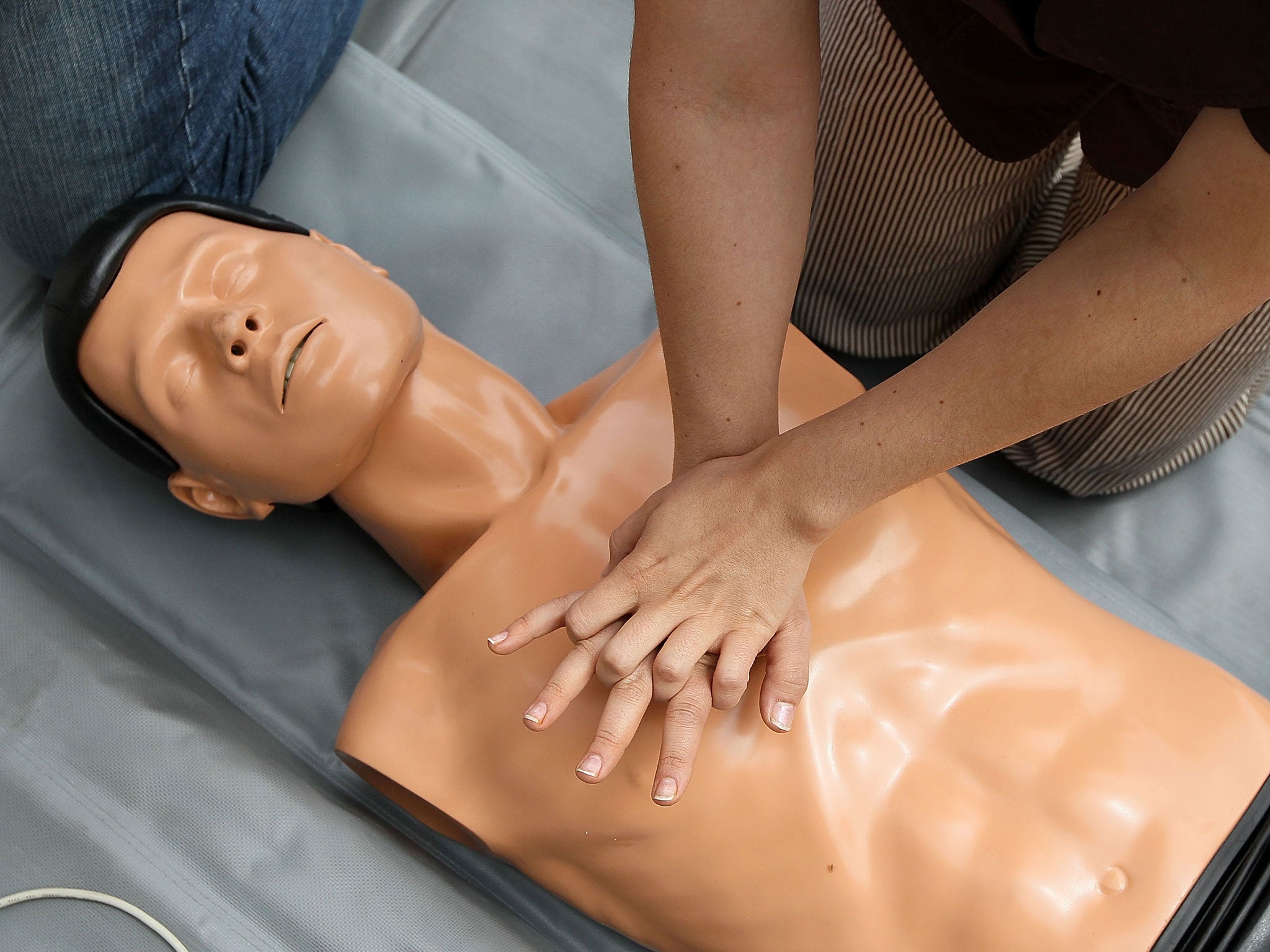First Aid education could save thousands of lives a year, so why isn't it on the curriculum?
Two months. That's how long we have to create a generations of life-saving heroes

Your support helps us to tell the story
From reproductive rights to climate change to Big Tech, The Independent is on the ground when the story is developing. Whether it's investigating the financials of Elon Musk's pro-Trump PAC or producing our latest documentary, 'The A Word', which shines a light on the American women fighting for reproductive rights, we know how important it is to parse out the facts from the messaging.
At such a critical moment in US history, we need reporters on the ground. Your donation allows us to keep sending journalists to speak to both sides of the story.
The Independent is trusted by Americans across the entire political spectrum. And unlike many other quality news outlets, we choose not to lock Americans out of our reporting and analysis with paywalls. We believe quality journalism should be available to everyone, paid for by those who can afford it.
Your support makes all the difference.Who was your favourite teacher at school? The one who brought the Victorians to life or the one who made chemistry go off with a bang? Chances are they knew how to make their lessons exciting, relevant and inspiring. Of course, even top teachers need subjects that will get their pupils fired up – and few fit the bill like first aid. Importantly, this subject is also absolutely essential for us to build a more resilient and humane generation.
We know that emergencies can happen anywhere, but only seven per cent of people in the UK can correctly recall first aid advice and feel confident and willing to give first aid. Simple skills learned in just a few minutes – like what do if someone becomes unconscious – can save lives.
The Red Cross recommends that schools make life-saving skills and resilience building part of core subjects like science and PE. Our studies show that first aid lessons give young people life-saving skills and the confidence to use them.
Yet only 20 per cent of secondary school students in England and Wales say they have learned life-saving skills in the classroom and just 4 per cent of them would step up in aid of someone needing first aid assistance, according to an ICM poll in January.
This is why the British Red Cross has launched the Pupil, Citizen, Life-saver campaign, urging the Government to put these topics at the heart of England’s new national curriculum. It’s a call which can only succeed with as many members of the public as possible signing up to the e-campaign and making their voices heard.
Earlier this month, the Government announced draft plans for the new curriculum making no mention of first aid education at all. These proposals are now open to public consultation; and we have less than two months to shape the future lives of millions, by getting first aid into schools so every child can learn how save a life.
What is encouraging is that young people themselves are overtly keen to learn first aid. The ICM poll found that 94 per cent of secondary school students would feel more confident to help a friend or family member needing first aid if they received training. Additionally, 91 per cent of students would like to learn first aid in schools.
These numbers should be a massive wake up call for each and every one of us: teachers, parents, politicians and children themselves. First aid education must be more accessible in the classroom to build a generation of better citizens who possess life-saving skills. The evidence shows the UK needs to build a generation of lifesavers by teaching them first aid at school from primary school level.
The British Red Cross is encouraging people to visit its webpage to sign up a petition that will get the Government to make first aid education mandatory in all schools across the country.
Join our commenting forum
Join thought-provoking conversations, follow other Independent readers and see their replies
Comments